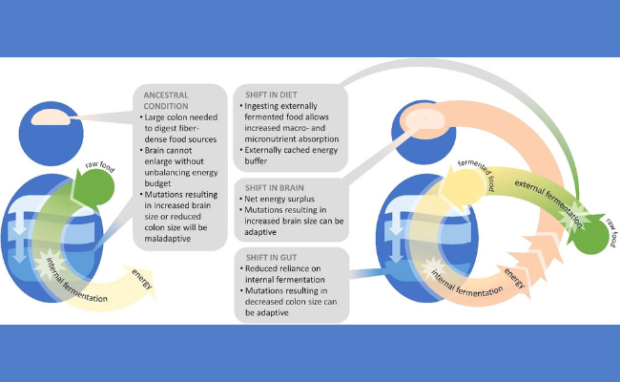Food preservation sparked human brain growth: study
Have you ever wondered why we eat so much fermented food nowadays? A study by evolutionary neuroscientist Katherine Bryant of Aix-Marseille University and her two US colleagues suggests our minds develop thanks to fermentation. It made food easier to digest and contained more nutrients, facilitating our grey matter’s development.
Food preservation exists worldwide, but most may not know its significance. Reading more about this discovery could give you a better appreciation of kimchi, yogurt, and other fermented products. Moreover, it lets us know more about how we developed into the smart beings that dominate the world and every animal.
This article will discuss how food preservation helped human brains grow. Later, I will share other unique discoveries about the human brain.
How did food preservation help brains develop?

Katherine Bryant and her team discovered fermented foods are easier to digest and have more nutrients available than raw alternatives. Also, it encouraged ancient peoples’ colons to become more efficient.
Their guts shrank as the increased size became unnecessary to derive nutrients from food. Later, this organ shrank while absorbing more nutrients for brain growth.
Bryant’s research delved deeper into the fact that human brains tripled in size over the last two million years of evolution. Moreover, colons shrunk by an estimated 74%, suggesting ancient humans broke down plant-derived food.
It led to her and her team coming up with their “external fermentation hypothesis.” It proposes that our ancestors’ brains may have evolved into our modern ones via food fermentation.
Our guts ferment food to gain energy, but doing that outside our bodies allows our organs to observe more. External fermentation produces adenosine triphosphate or ATP, which is an important chemical energy source for our metabolism.
You may check their hypothesis in the image above. Also, Bryant and her team explained how our ancestors stumbled upon this food creation process.
You may also like: Scientists reconstruct song from brain waves
ScienceAlert said it only requires a simple storage space like a cave, a hollow, or a hole in the ground. As a result, people didn’t need tools to ferment food.
“Hunting, scavenging from large carnivores, and fire use carry their own risks. Perhaps the risks of fermentation were more predictable and thus more reliably mitigable through individual and cultural learning.”
Food fermentation also turned poisonous plants and animals edible. For example, this process removes cyanide from the cassava plant. “The offloading of gut fermentation into an external cultural practice… that laid out the metabolic conditions necessary for selection for brain expansion to take hold,” the researchers added.
What is another recent discovery about the human mind?

Scientists have found another interesting aspect of our minds. Behavioral scientist Benjamin Rogers and his team discovered that we could live more fulfilling lives by matching them with classic stories that follow the Hero’s Journey.
In 1949, mythologist Joseph Campbell outlined Hero’s Journey to draw attention to the typical narrative structure of the most enduring stories throughout history. It usually involves a character going on a wild adventure, overcoming obstacles, and then becoming a changed person.
“It might seem difficult for people to imagine themselves as mythical heroes, but our results suggest this is not required,” Rogers stated. “The lives of everyday people can – and do – have the elements of a Hero’s Journey, and most any life can be restoried as such.”
Rogers and his colleagues shortened the Hero’s Journey’s 17 steps into seven elements that translate to modern life: a lead protagonist, a shift of circumstances, a quest, a challenge, allies, a personal transformation, and a resulting legacy.
You may also like: Brain chip lets people control devices with their minds
Then, they created and tested a 21-item Hero’s Journey Scale (HJS) to measure how this narrative structure matches people’s life stories. For example, the scientists asked people how often they encounter novelty instead of estimating their openness to change for the shift element.
The researchers gathered over 1,200 individual narratives from online and face-to-face interviews. Afterward, they analyzed these samples and found those that contained more of their HJ elements reported higher levels of meaning.
Most felt they led good lives and had lower levels of depression. “People who use the hero’s journey to tell their story appear better equipped to frame the ambiguity of life as meaningful to them,” the researchers wrote in their paper.
Conclusion
Scientists found out that food preservation was pivotal in the development of the human brain from its ancient past to the present. The process made food more digestible, allowing us to absorb more energy and nutrients.
That enabled our brains to use more energy for development. However, the scientists said we need more empirical research to confirm their hypothesis’ validity.
Learn more about this fermentation food research by reading its Communications Biology webpage. Also, check out more digital tips and trends at Inquirer Tech.